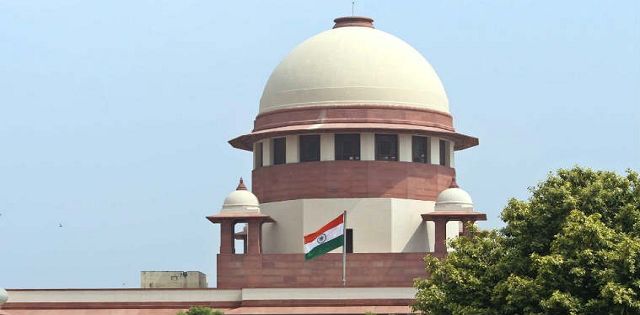New Delhi: The Constitution will ‘lose its importance’ if there is no redressal for breach of fundamental rights, such as right to life and fair trial, of the citizens by private individuals who are performing state actions, the Supreme Court said Wednesday.
Fundamentals rights such as right to life and equality and freedom of speech enshrined under the Constitution are enforceable against the State and its instrumentalities and the private parties, performing state actions, have been taking the plea that they cannot be held accountable for breach of such rights of the citizens.
“The Constitution will lose its importance, if there are no redressal for the violation of fundamental rights (of citizens) by private parties performing government functions,” a five-judge Constitution bench headed by Justice Arun Mishra observed while dealing with issues arising out of a case related to controversial statement by former UP minister Azam Khan over a rape case.
Senior advocate Harish Salve, who is assisting the bench as an amicus curiae, said ‘the idea that you have to be state employee or instrumentality to carry out the public duties died decades ago’ as private individuals and firms are conducting functions which are primarily done by the state.
The theory that only government servants perform public service need to be relooked, Salve told the bench which also comprises of Justices Indira Banerjee, Vineet Saran, MR Shah and S Ravindra Bhat.
With the progress in the society, the role of the state has shrunk and the government authorities have lesser roles in our lives and our jurisprudence has to change accordingly, Salve said and referred to the work being conducted by private parties.
“So you are saying that if public duties like railways and collection of toll are given to private entities, they should be made responsible for upholding the fundamental rights,” the bench asked.
Salve said time has come to ‘marry’ the constitutional principle with the privileges to private entities to ensure fundamental rights of the citizens.
The bench had earlier taken note of a controversial statement of Azam Khan that the gruesome Bulandshahr gangrape in 2016, was part of a ‘political conspiracy’. He had later tendered an unconditional apology before the apex court, which was accepted.
Salve said if the state fails to discharge its constitutional obligation then, aggrieved persons can seek damages against such errant public servants under the law of tort (civil wrong).
“The State is under a constitutional duty to ensure that the rights of its citizens are not violated and to create an ecosystem in which these rights can be enjoyed in their activist dimension,” Salve told the bench.
PTI





